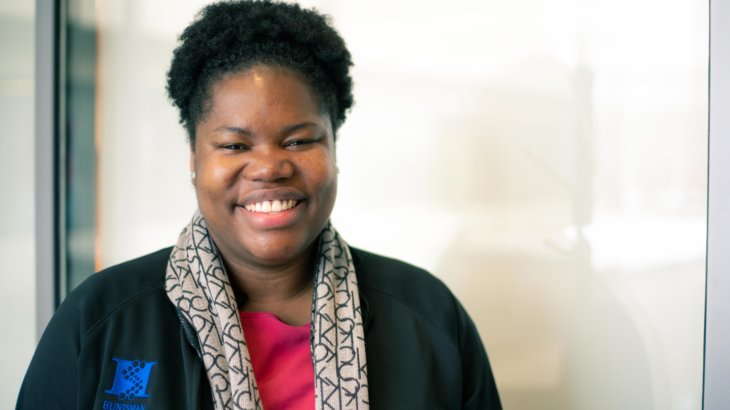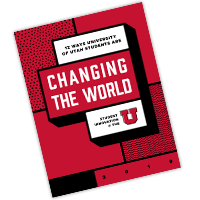When Torle Nenbee was 11 years old, her family came to Utah as refugees.
“I started school in the sixth grade,” she said. “People didn’t understand why I couldn’t speak — if you don’t quite know the language, people think you’re stupid.” This barrier didn’t stunt Nenbee — it motivated her. She taught herself English from reading the dictionary and watching children’s movies.
“I’ve always just looked back on my experience on how generous and kind people were, how they helped me through that journey,” she said.
Now, Nenbee is finishing up her master’s of social work degree at the U. During her master’s, she interned with University Neighborhood Partners, where she met program alumni, refugees, immigrants and English as a Second Language (ESL)-background individuals unable to pass the Association of Social Work Boards’ (ASWB) licensure exam. Nenbee discovered a lack of institutional support for these individuals, who were failing the exam despite successful undergraduate and graduate careers.
“The test is very biased,” she said. “It’s only in English, and the phrasing is a huge barrier.”
Bills have been proposed to the Utah state legislature to provide dictionaries to test-takers, but Nenbee didn’t think that would be enough.
“To prepare people for this exam, you have to start from the very first semester,” she said.
More articles like this in ‘Student Innovation @ the U!’
Find this article and a lot more in the 2019 “Student Innovation @ the U” report. The publication is presented by the Lassonde Entrepreneur Institute to celebrate student innovators, change-makers and entrepreneurs.




